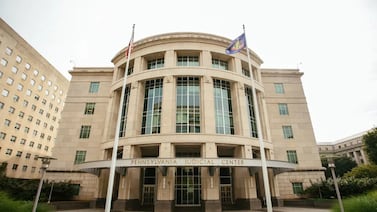The election code dates to 1937, containing sections that contradict one another and don’t address key legal precedents.
A panel of election experts held a discussion on unequal voting policies in the state and possible solutions.
The counties make their own policies on drop boxes, fixing mail ballots, and more. Our maps show the uneven landscape that gives Pennsylvanians additional voting options based on where they live.
Among the proposals is one that would give the legislature more control over the final products.
Lawmakers and courts differed on how — and whether — to define and uphold “partisan fairness” when reviewing electoral maps.
The order clears the way for the use of new state House and Senate maps in the May primary.
The majority highlighted traditional redistricting criteria and partisan fairness.
The map closely resembles the current one, with Democrats and Republicans each expected to win roughly half of the state’s 17 districts.
The state Supreme Court agreed to take over the process in early February following hearings held by a lower appellate judge.
The data on compactness, contiguity, minimal splits, and equal population.








